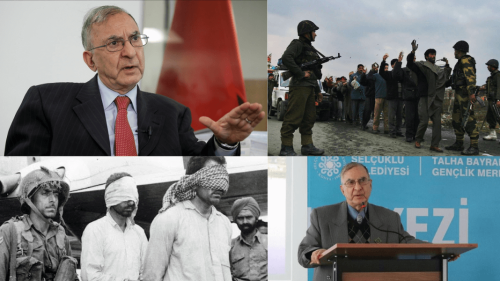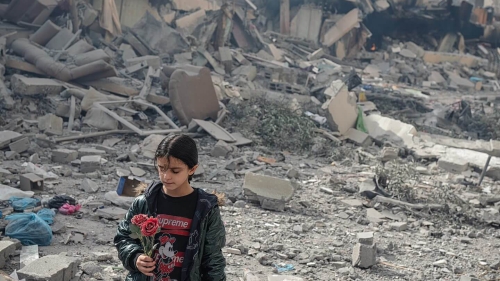Kashmir: Rugged and Beautiful, is a 'Ticking Time Bomb'

When Americans hear the news about Kashmir — a flashpoint of Indo-Pakistan conflict — they simply move on to the next news story.
That is, if Americans pay any attention to it at all.
The facts: Kashmir is a ticking time bomb. A nuclear exchange is more likely to occur on the Indian subcontinent than on the North Korean peninsula, resulting in billions of casualties.
The history: A legacy of the colonial rule that partitioned India, creating Pakistan, leaving the disputed Kashmir region to a future referendum per a 1948 U.N. Security Council resolution. Kashmiris were to choose joining India or Pakistan, or vote for their own independence. That process was blocked by India.
The current right-wing Indian government, in annexing the region unilaterally, precipitated a fresh crisis. Kashmir is under a communications blackout, cut off from the rest of the world. Neglected and abused for 70 years, today mostly Muslim Kashmiris are fiercely independent.
Rugged and beautiful, the paradise of Kashmir is burning. Fanning the flames are the nationalists, militants and religious zealots on all sides willing even to risk a nuclear winter.
There’s much at stake for my interfaith family. Ours is a Hindu-Muslim union. I dread the prospect of any war — surely to affect communal relations, affecting 200 million mainland Muslims of India, the largest peace-loving minority in any country that wishes to live harmoniously in a secular country, even as they face daily threats of lynching and persecution by Hindu extremists in parts of India.
If hostilities break out, it’ll further affect their lives.
I first saw this legendary land in the summer of 1967, before coming to America. I still cherish the fond memories.
When I hear Kashmir, I think of the fragrant saffron fields, which legend holds were introduced by Sufis. I think of 100-foot-tall chinar trees with their wide, shady canopies. I recall the houseboats, anchored in Dal Lake, and the gondola-like boats, called shikara, slowly moving across the lake.
My long, slow journey into Kashmir began at the Himalayan foothills. Travelling along the winding mountainous paths, the 200-mile journey took 12 hours. Night driving wasn’t recommended.
We stopped and I slept outdoors on a cot. As I lay looking up at the stars, I heard devotional hymns and bells from a shrine farther up in the mountains, lulling me to sleep.
Next day, we drove through a dimly lit two-mile-long tunnel through Banihal Mountain, often called the "Gateway to Kashmir,” emerging into a vast, lush valley surrounding a mirror-like lake reflecting snow-peaked mountains. The iconic Jhelum River flows through the peaceful city. In better times, Indian elites and international tourists enjoyed the serene and cool summer months.
Everyone knows the story of Taj Mahal, built as an act of love. But Kashmir boasts another world heritage site that was born of love. Jahangir, the Mughal emperor, built beautiful gardens to honor his beloved wife, Nur Jahan, with terraced pools, waterfalls and elaborate landscaping known as Shalimar (“abode of love” in Sanskrit).
When Jahangir finished his gardens, he had an inscription carved in stone from the Sufi poet Amir Kushrow: “If there is a paradise on earth, it is here! It is here! It is here!”
These Muslim rulers were environmentalists, appreciating God’s artistry in nature.
The United Nations Educational, Scientific and Cultural Organization sums up the charm of the graceful gardens: “The outstanding quality of Shalimar Bagh lies in the synthesis of its landscape and architectural features. The wider setting of the rural agricultural landscape, the rice fields and hamlets, the historic canal that links the garden to Dal Lake, and the mountain backdrop, all contribute to the significance of Shalimar Bagh.”
There’s so much of God’s beauty cradled in Kashmir — a destination of love and peace. But devastating, hate-filled actions have overtaken this contested land.
Our world, facing a present and immediate danger, must find ways to diffuse this time bomb.
Victor Begg is a nationally known peace activist and author of the 2019 memoir, “Our Muslim Neighbors.” He lives in Fort Pierce, Florida with his wife. You can reach him at VictorBegg.com.
( Source: TC Pam - USA Today )

















